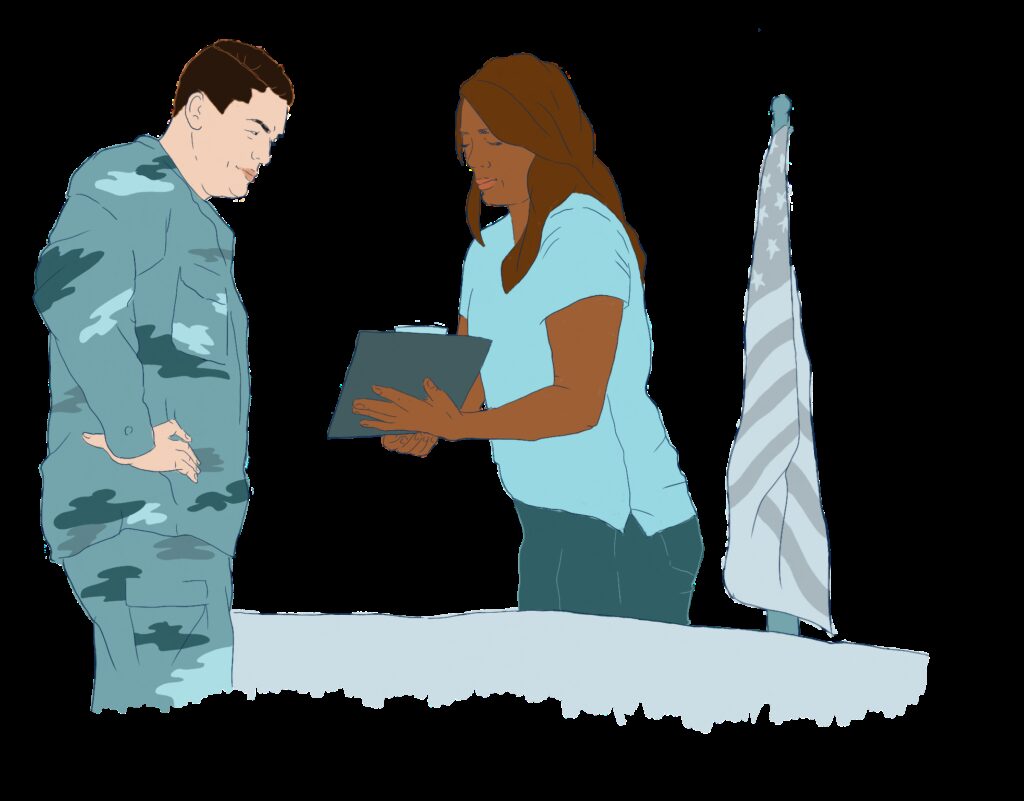Transitioning from active duty in the military to civilian life can be a challenging process for veterans. This article explores the various obstacles veterans may face, including emotional and mental well-being, job hunting and career transition, education and skills enhancement, financial stability, building a support network, and physical wellness. It highlights the importance of seeking support, translating military skills, utilizing educational benefits, seeking financial guidance, connecting with other veterans, and maintaining physical fitness. By proactively addressing these areas, veterans can successfully navigate the transition and thrive in their post-military lives.
Life After Active Duty: Navigating New Challenges as a Military Veteran
Introduction
Transitioning from active duty in the military to civilian life can present a variety of challenges for veterans. While military service provides valuable skills and experiences, veterans often face unique obstacles as they reintegrate into civilian society. This article aims to shed light on the challenges veterans may encounter and offer guidance on how to navigate this transformative post-military phase.
1. Emotional and Mental Well-being
One of the most significant challenges veterans face upon leaving active duty is adjusting to everyday life. After serving in high-stress environments, the transition to a civilian routine can feel disorienting. Many veterans may experience feelings of isolation, depression, or anxiety as they navigate this change. Seeking support from mental health professionals, joining support groups, and maintaining a strong social network can be crucial to promoting emotional and mental well-being.
2. Job Hunting and Career Transition
Another significant challenge veterans encounter is finding meaningful employment that aligns with their skills and interests. Civilian employers may have limited knowledge about the unique experiences and qualifications that veterans possess. It is essential for veterans to translate their military skills into civilian terms, highlighting their adaptability, leadership, teamwork, and problem-solving abilities. Utilizing resources such as veteran career fairs and networking events can assist in connecting with employers who value and understand military service.
3. Education and Skills Enhancement
Continuing education and skills enhancement are crucial aspects of post-military life. Many veterans may choose to pursue higher education to further their careers or explore new fields altogether. Taking advantage of the educational benefits available through programs such as the Post-9/11 GI Bill can help alleviate the financial burden often associated with furthering education. Additionally, veterans can consider vocational training, certificate programs, or apprenticeships to develop new skills relevant to their desired career paths.
4. Financial Stability
Financial stability is a common concern for veterans transitioning to civilian life. Adjusting to civilian salaries, understanding benefits, and managing finances can be challenging. Veterans should carefully consider their financial goals and seek guidance from financial advisors who specialize in working with veterans. Financial planning, budgeting, and taking advantage of available resources such as housing assistance programs or military-specific banks can assist in achieving long-term financial stability.
5. Building a Support Network
Building a strong support network is essential for veterans navigating life after active duty. Connecting with other veterans, both online and in person, can provide a sense of camaraderie and understanding. Various veterans’ organizations offer mentoring programs, networking events, and other resources that can help in the transition process. Additionally, integrating into local communities, joining clubs or organizations aligned with personal interests, and fostering relationships with neighbors can contribute to a supportive civilian network.
6. Physical Wellness
Maintaining physical wellness is crucial for veterans transitioning to civilian life. The military’s emphasis on physical fitness may have instilled healthy habits and routines that veterans can carry forward. Engaging in regular exercise, adhering to a nutritious diet, and prioritizing self-care contribute to overall well-being. Veterans can explore local gyms, recreational sports leagues, or even continue serving through reserve or National Guard units to stay physically active and connected to a military community.
Conclusion
The transition from active duty to civilian life presents a unique set of challenges for military veterans. However, by proactively addressing emotional well-being, finding fulfilling employment, continuing education and skills enhancement, ensuring financial stability, building a support network, and prioritizing physical wellness, veterans can successfully navigate this transformative phase. Recognizing and embracing the value of military experiences while also adapting to civilian life can empower veterans to thrive post-active duty.
